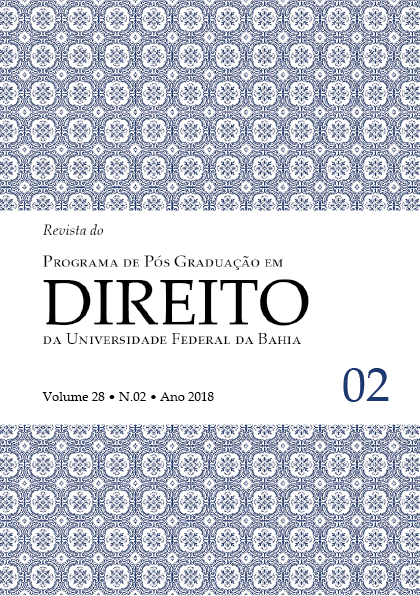Animal Abolitionism: A concise analysis of theoretical and educational perspectives
DOI:
https://doi.org/10.9771/rppgd.v28i2.29015Resumo
This article provides a very succinct analysis of some of the main animal ethics theories, aiming to construct a foundation upon which an animal abolitionist education and legislation might flourish. The discussion encompasses a brief review of the concept of speciesism, its different modalities and moral unfoldings, and a critical analysis of the role of our dominant formal education in perpetuating speciesist values. Although isolated forms of education as public lectures, short courses and local events, are important ways to fight speciesism, the conclusion is that there is an urge for formal education to be abolitionist as a whole. This is the only way to promote a robust and genuine shift of paradigm and erect a foundation upon which an abolitionist legislation may prosper. Because future lawyers, attorneys and public defenders should keep law pari passu with new scientific evidences and new comprehensions of both justice and morality, the area of Law Studies is one of the most important targets of the present discussion.
Downloads
Downloads
Publicado
Como Citar
Edição
Seção
Licença
1. Autores mantém os direitos autorais e concedem à revista o direito de primeira publicação, com o trabalho simultaneamente licenciado sob a Licença Creative Commons Atribuição 4.0 Internacional que permite o compartilhamentodo trabalho com reconhecimento da autoria e publicação inicial nesta revista.
2. Autores têm autorização para assumir contratos adicionais separadamente, para distribuição não-exclusiva da versão do trabalho publicada nesta revista (ex.: publicar em repositório institucional ou como capítulo de livro), com reconhecimento de autoria e publicação inicial nesta revista.
3. Autores têm permissão e são estimulados a publicar e distribuir seu trabalho online (ex.: em repositórios institucionais ou na sua página pessoal) a qualquer ponto antes ou durante o processo editorial, já que isso pode gerar alterações produtivas, bem como aumentar o impacto e a citação do trabalho publicado

